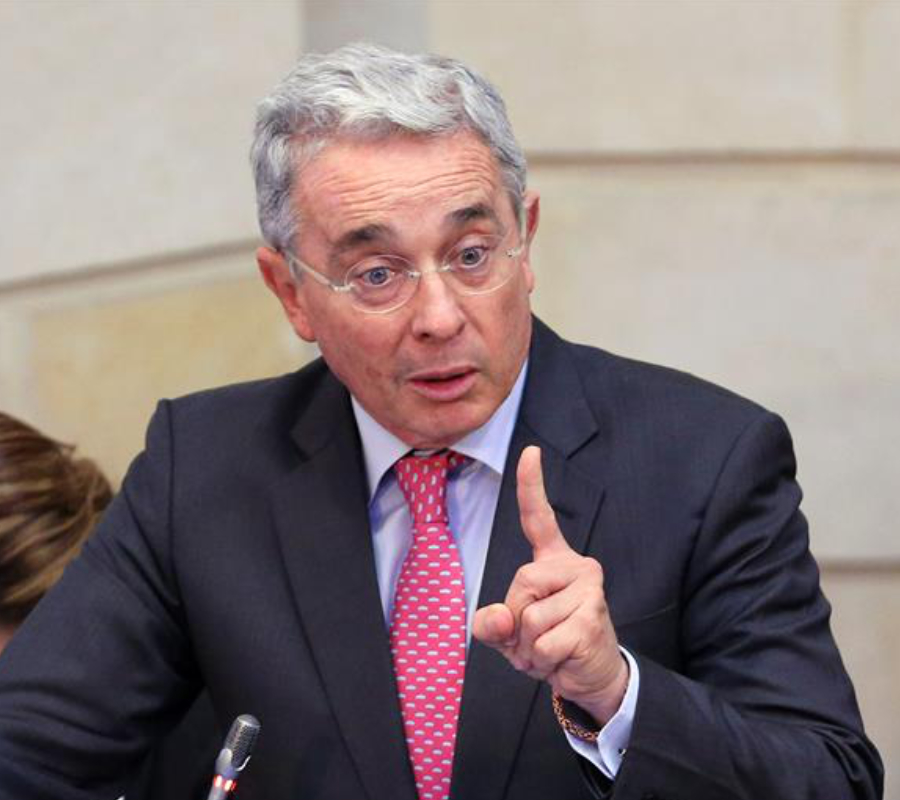Colombians have voted “No” on a referendum that would ratify the peace agreement between the government and the Marxist guerrilla FARC, who have been at war for 52 years.
The referendum asked voters: “Do you support the final agreement to end the conflict and to construct a stable and lasting peace?.” 50.22 percent of voters chose “No,” over 49.78 percent that chose “Yes.” 6,430,708 Colombians participated in the democratic process. Even when the peace treaty was not ratified, FARC leader Timoleón “Timochenko” Jiménez assured that the group would obey the ceasefire agreed upon since June 2016. The same was stated by Colombian President Juan Manuel Santos on behalf of the Armed Forces.

Why Colombians said no to a peace deal?
The main plotter against the referendum was Colombian ex-president Álvaro Uribe, who in fact performed the groundwork for the peace agreements. Although he picked Santos as his successor, eventually Uribe concluded that Santos was reversing his policies and proved to be a threat to the progress that Colombia had achieved in matters of national security. The FARC has taken national territory, performed hundreds of kidnappings and is the main motor of Colombia’s illicit drug traffic.
Some argue that the peace agreement failed because it would allow FARC to go unpunished for their crimes committed over the course of 52 years. Furthermore, the agreements would have given the Marxist guerrilla ten seats in Congress, which would transform a military and law-enforcement problem into a lawmaking one, where drug traffickers would have a voice in the state’s legislative wing.

Allowing the peace treaty to pass would have also meant that Colombia would recognize the FARC as a legitimate group with voice and support, which could be seen as dangerous when analyzing Colombia’s neighbor Venezuela as an example.
Former Venezuelan President Hugo Chávez was a close ally to FARC. Both Chávez and FARC responded directly to Fidel Castro. Chávez, a leftist parachuting soldier, and a failed putschist, won Venezuela’s presidency in 1999, which allowed him to seize power and plunge the country from its largest oil-fueled bonanza into a situation of nationwide poverty and food shortage.
Chávez served to rally the modern leftist ideology in America, a phenomenon known as the Pink Tide. Following Castro’s ideals, Chávez led South America to a new age of pseudo-socialism, which in Venezuela was called 21st Century Socialism, resulting in the political and economic crisis that Venezuela endures to this day under Chávez’s successor Nicolás Maduro.
On the other hand, Uribe, a sworn enemy of the Chavista regime, had his father killed by guerrilla rebels. After becoming president, he led the Colombian military to strike down the militants and bring them to submission, forcing them to an eventual peace treaty, which materialized on Sunday. Uribe recognizes the FARC as drug-trafficking terrorists who are bound to be more dangerous if their influence were to spread on legitimate grounds, which would translate to the ten seats in Congress offered by Santos. The negotiations with the FARC occurred on Havana, Cuba, where the Castros have complete control and oversight of the talks.
More than a peace treaty: A play of international influence
Uribe commented that the peace treaty would revert Colombia’s economic growth and would impose on itself the possibility of a far-left legitimate government force. Even when public opinion suggests that Colombia opted for vengeance or war instead of peace, the truth is that the resolution to forgive the guerrilla that has broken state law for 52 years was rejected by Colombians themselves in a democratic election.
Political analysts point out that now Uribe has all the cards to launch himself as a 2018 presidential candidate, where he could draft a better peace agreement with FARC, as his concerns were not wrongful by any means.
After ratifying the peace treaty, the FARC would have to yield their weapons to the U.N. while also pleading guilty to their war crimes, but with the benefit of holding their own political party and having diplomatic immunity.
Santos took the presidency in 2010, and as soon as Uribe perceived that his former colleague was aiming to persecute him he started campaigning for the “No”, as he was sure that Santos’ proposals would highly benefit rebels and would symbolize a defeat for Colombia’s principles and sovereignty. The FARC guerrillas have terrorized the Colombian countryside for decades, always being under the supervision of patrons such as the Castros and Hugo Chavez.
Uribe assured that he does bet on peace, but that the agreement has to be revised to have fair outcomes for both parties. Former president and now-senator Uribe showed that he is still a prominent political figure in Colombia, as he managed to stop a decision that appeared unanimous. U.S. Secretary of State John Kerry, Venezuelan President Nicolás Maduro, and many other American dignitaries attended the celebration of the agreements.
In fact, the Santos administration did not have to host a referendum to ratify the talks. It all occurred as a display of political strength, just like the British Brexit, where Prime Minister David Cameron did not foresee that the U.K. would choose to leave the EU. In both referenda the unexpected outcome won by a slight majority, which is still valid in democratic terms.
In fewer words, Colombia’s Brexit resulted in a decision to not ratify a peace deal with drug-trafficking rebels famous for staging kidnappings and forcing children to fight on their behalf.
Source: CNN
